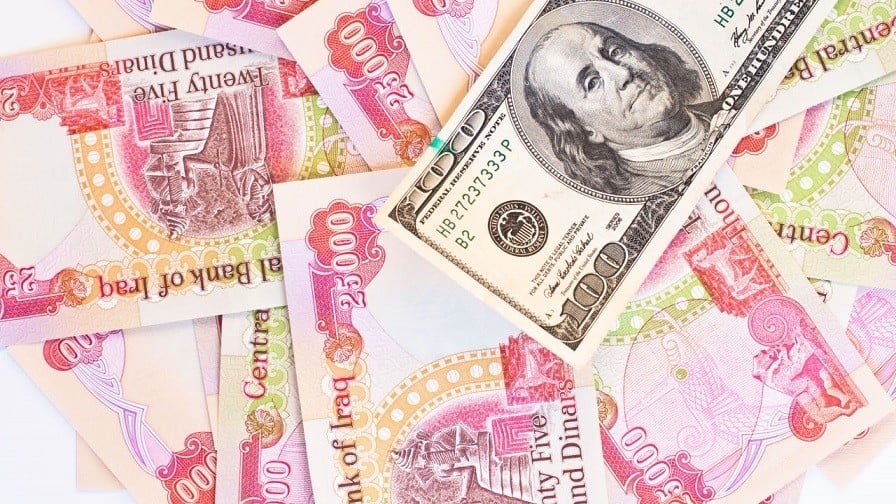 |
| The US dollar's dominance in the Middle East may be fading. (Source: Shutterstock) |
Over the past few months, senior politicians in several Middle Eastern countries have made statements suggesting that the US dollar's dominance in the region may be waning.
The Iraqi government banned the use of US dollars in business transactions on May 14. The ban was issued to promote the use of the Dinar, reduce the influence of the US dollar and limit the exploitation of this currency in the black market.
Previously, in February 2023, Iraq announced that it would allow trade transactions with China in Yuan instead of USD.
The Central Bank of Iraq has announced that it will allow transactions with China to be conducted in yuan, the first time Iraq has accepted cross-border trade without the US dollar.
Middle East 'shuns' USD
Earlier this year, Saudi Arabia's finance minister said the country was "ready" to sell oil in different currencies, including the euro and the yuan. The United Arab Emirates (UAE) also revealed it would work with India to use the rupee in trade transactions.
Last year, Egypt announced plans to issue bonds denominated in Chinese yuan. It has already issued bonds denominated in yen.
In addition, several other Middle Eastern countries such as Egypt, Saudi Arabia, UAE, Algeria and Bahrain said they want to join the BRICS group of leading emerging economies including Brazil, Russia, India, China and South Africa.
The group plans to discuss the feasibility of introducing a common currency at a summit in South Africa later this year, an idea that was floated by Russian President Vladimir Putin in early June 2022.
Bloomberg reported that BRICS will discuss the above issue on August 22.
Since 2021, the UAE has also been part of a pilot project run by the Switzerland-based Bank for International Settlements that looks at cross-border digital payments that could bypass the US dollar.
According to Bloomberg , the US dollar now accounts for about 58% of official foreign exchange reserves globally, down from 73% in 2001. In the late 1970s, the ratio was 85%.
USD still dominates the Gulf
However, most experts say the move away from the dollar is slow and this is certainly true in the Middle East.
Since the 1970s, the oil-producing Gulf states have had a partnership with the US. Most of them, with the exception of Kuwait, have “pegged” their currencies to the US dollar.
“One of the biggest signs that the move away from the dollar is underway is the devaluation of currencies in the Gulf countries. But so far, we have not seen that,” noted Hasan Alhasan, a Middle East policy researcher at the London-based International Institute for Strategic Studies.
According to Daniel McDowell, professor of political science at Syracuse University in New York (USA), “The key words here are ‘declaration’, ‘ability’, and ‘willingness’ when it comes to replacing the USD. However, declarations are easy, but actions are much more difficult.
For oil-producing countries, like Saudi Arabia , such statements are also a way to attract US attention."
Mr. McDowell does not rule out the possibility that the dollar's dominance will one day fade. But right now, "much of this talk is symbolic. Any changes are very small and slow," the expert asserted.
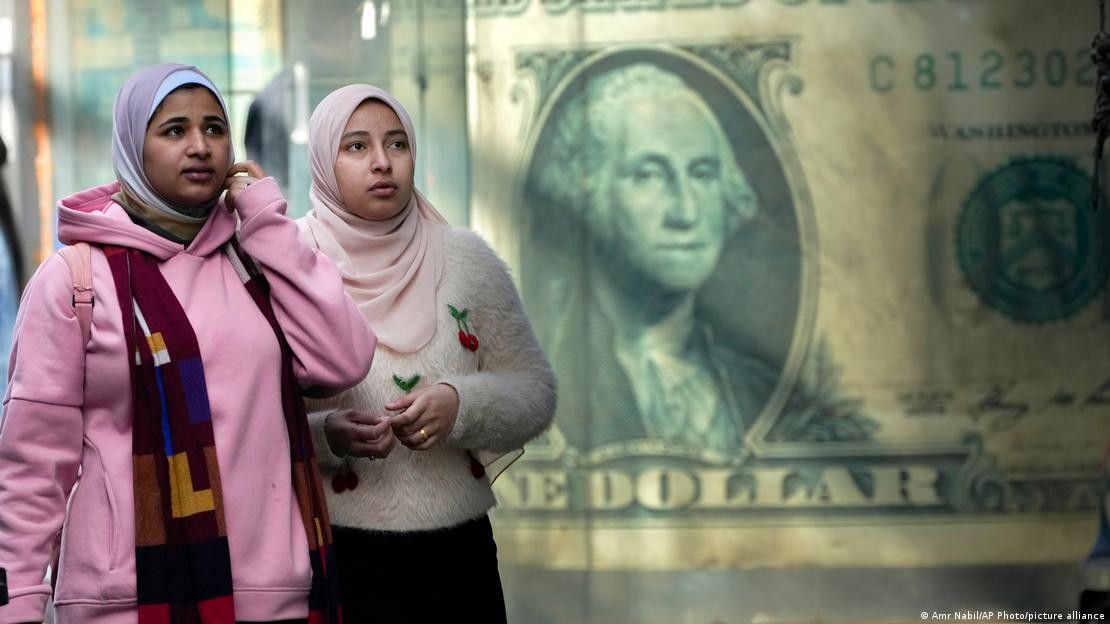 |
| The US dollar is losing its appeal in the Middle East. (Source: AP) |
Two main reasons
According to DW, experts agree that there may be two main reasons why Middle Easterners are looking for other currencies, instead of just using the USD.
First, regarding Russia's special military operation in Ukraine.
Mr McDowell thinks sanctions are a very important part of the debate about whether to “move away” from the US currency.
“The more the US uses the dollar as a weapon in foreign policy, the more its opponents will move away from it,” the expert argued. “Right now, a lot of Russian money flows through countries in the Middle East and Asia. Basically, these are countries that have chosen not to comply or not to enforce US or European sanctions.”
But if sanctions against Russia are further strengthened, turning into secondary sanctions, it will be much more difficult for those countries to "evade" sanctions.
“So governments concerned about US sanctions should take ‘preemptive’ steps, even if they are not ready or interested in making a radical shift away from the dollar,” Mr. McDowell explained.
Second, according to Mr. Alhasan, countries are realizing that the US is trying to rewrite the rules of the global oil market, aiming at Russia's interests and that poses a strategic threat to Saudi Arabia.
In March, Saudi Arabia's Energy Minister Abdulaziz bin Salman said that if any country tried to impose a price cap on its oil exports – as it did with Russia – Saudi Arabia would no longer trade with it.
This is why the trend away from the dollar is likely to continue as long as sanctions remain in place, said Maria Demertzis, professor of economic policy at the European University Institute in Florence, Italy.
However, de-dollarization or moving away from the greenback will not be possible immediately.
Even if some countries wanted to move away from the US dollar as a currency, replacing the payments infrastructure provided by a currency-driven system would be extremely difficult, Mr. Demertzis pointed out.
Source


![[Photo] Opening of the 14th Conference of the 13th Party Central Committee](https://vphoto.vietnam.vn/thumb/1200x675/vietnam/resource/IMAGE/2025/11/05/1762310995216_a5-bnd-5742-5255-jpg.webp)







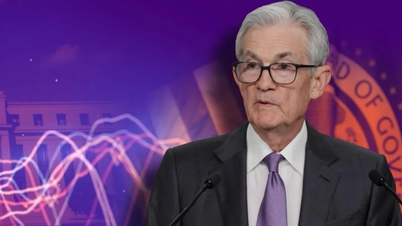





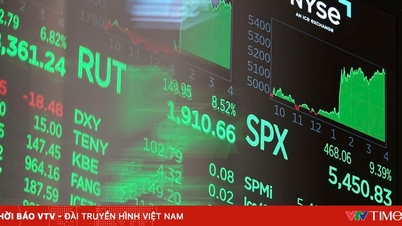












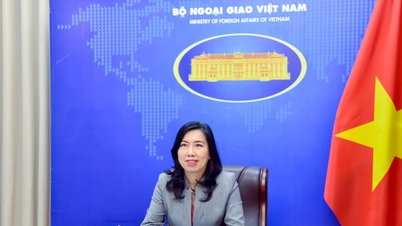




![[Photo] Panorama of the Patriotic Emulation Congress of Nhan Dan Newspaper for the period 2025-2030](https://vphoto.vietnam.vn/thumb/1200x675/vietnam/resource/IMAGE/2025/11/04/1762252775462_ndo_br_dhthiduayeuncbaond-6125-jpg.webp)







































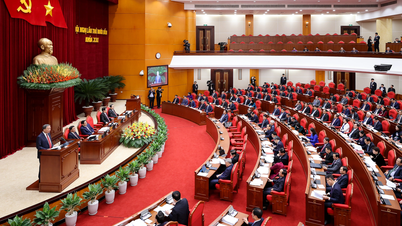









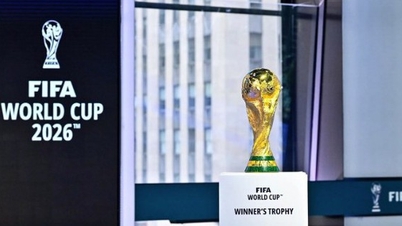






















Comment (0)